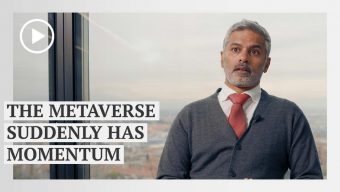The world today, despite Trump, COVID-19, and international tension, is a much more globalized environment than it was just a few decades ago. Yet, in certain fields that are vital in an interconnected world, such as the humanities and international politics, young graduates may lack the required in-depth knowledge.
In his book, Marruecos, el vecino desconocido (“Morocco, the Unknown Neighbor”), the journalist Javier Otazu, who is a correspondent for the EFE agency in Rabat, recounts that when a group of German students arrived at the touristy main square in Marrakech, they were arrested and taken directly to the police station. The reason? They were wearing T-shirts with a map of Morocco… in which the Sahara was missing. A taboo subject in that country.
Another well-known controversy led the firm Versace to withdraw thousands of articles from its shop windows, and even to publicly apologize to the Chinese government for depicting Hong Kong and Macao as not belonging to China. I am sure that all the firm’s designers and marketing and sales managers went to very good universities. Idealism or ignorance in the first case? Opportunism or a lack of understanding of international reality in the second?
It is often said that university graduates are “the most educated generation in history.” This is definitely true, especially in technology, science, business, management, among many other areas.
Yet, it’s necessarily the case in all fields. One of these fields just might be the humanities. In recent decades, society, and therefore the education system, has focused on short-term productivity, that is, on using tools, as opposed to the critical thinking and creativity that is so important in times of change and turbulence like those we are currently experiencing. We must ask ourselves: are young professionals more prepared in the field of the humanities, which implies thorough knowledge of other cultures and a global vision, than they were a few decades ago?
Another area that has been neglected in recent times is international politics and geopolitics. We despaired when we learned through John Bolton’s book that Trump did not know that the United Kingdom was a nuclear power or that he thought Finland was a Russian satellite state. If he had read a newspaper every week of his life, or read them on Sundays with their supplements, he would certainly be aware of this.
How many young university students have stopped reading newspapers? It is true that there is more information available these days than ever before, but it is also true that algorithms and social networks are designed to offer the customer exactly what we want, not to broaden our horizons, and certainly not to educate.
In the heyday of the press, young people began to read the newspapers that were brought into the home as part of the process of becoming an adult. Obviously they started with the sections that interested young people, usually sport and culture. Yet by the simple physical gesture of browsing a newspaper, they ended up discovering articles about distant conflicts or happened upon interviews with philosophers who shared their groundbreaking ideas which would truly open doors to other realities.
Firms that measure audiences indicate that, today, young people around the world barely read the printed word. In Spain, the under 34s only represent 18.7% of printed newspaper readership, according to the AIMC 2020 report. In the USA, only 2% of those under 29 years of age read newspapers on a regular basis. The trend is similar around the globe. In a world that continues to be globalized, though subject to increasing tension, knowledge of the humanities and international politics is set to be a differential aspect in the education of a country’s future leaders, whether they be politicians, entrepreneurs, or professionals.
In-depth knowledge of what is happening beyond our borders will make the difference. Perhaps that is why the best universities in the world have always maintained strong debate forums with philosophers, artists, politicians, and government leaders.
Yet we can also start with something very simple, such as providing students with access to printed newspapers so that they can browse the reality of the world around them, without the supervision of algorithms – because what becomes of the future of this world will have a direct impact on them.
© IE Insights.











